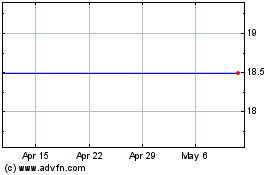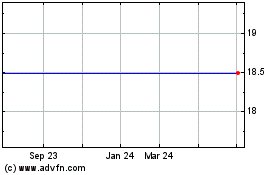Synovus Financial Corp.’s (SNV) first-quarter
2012 earnings came in at 2 cents per share, a penny above the Zacks
Consensus Estimate. This compared favorably with the prior quarter
earnings of 1 cent. Also, it significantly improved from the
prior-year quarter’s loss of 12 cents.
The sequential improvement in results at Synovus was driven by
an enhanced top line and lower operating expenses. Moreover,
improved credit quality, reduced credit costs as well as sturdy
capital ratios were the positives for the company.
In the reported quarter, net income available to common
shareholders was $21.4 million compared with $12.8 million in the
previous quarter and a net loss of $93.7 million in the year-ago
quarter.
Behind the Headlines
Total revenue reported in the quarter under review was $305.1
million up 1.5% from $300.6 million as of December 31, 2011 and
1.2% from $301.6 million as of March 31, 2011. The sequential
increase was mainly due to higher non-interest income partly offset
by lower net-interest income.
Net interest income at Synovus was $221.0 million, down 2.7%
from $227.2 million in the previous quarter and 6.9% from $237.4
million in the year-ago quarter. Net interest margin was 3.55%, up
3 basis points (bps) both sequentially and year over year, driven
by a decrease in the effective cost of funds.
Synovus’ interest expenses slipped 9.7% sequentially and 31.6%
year over year to $41.7 million in the reported quarter.
Non-interest income came in at $84.1 million, climbed 14.5% from
$73.5 million in the prior quarter and 31.1% from $64.2 million in
the prior-year quarter. The sequential surge was primarily caused
by gains in investment securities along with higher mortgage and
bankcard revenues, partially mitigated by lower service charges as
well as fiduciary and asset management fees.
Total non-interest expenses at Synovus declined 7.3%
sequentially and 15.3% year-over-year to $203.1 million. The
substantial dip was attributable to lower salaries and personnel
expenses, net occupancy and equipment expense along with lesser
Visa indemnification charges, partly offset by higher Federal
Deposit Insurance Corporation (FDIC) insurance and other regulatory
fees.
Total credit costs were $90.9 million, falling 0.44% from $90.5
million in the last quarter and 48.7% from $177.1 million in the
prior-year quarter.
Credit Quality
For Synovus, credit quality improved remarkably during the
quarter. Net charge-offs were $94.7 million in the quarter, down
16.5% from $113.5 million in the prior-quarter and 43.2% from
$166.9 million in the prior-year quarter. Moreover, the annualized
netcharge-off ratio was 1.90%, dropping from 2.26% in the previous
quarter and from 3.12% in the year-ago quarter.
In the quarter, Synovus’ non-performing loan inflows were $139.6
million, down 26.2% sequentially from $189.2 million and 54.5%
year-over-year from $306.5 million.
Additionally, potential problem commercial loans declined for
the six successive quarters to $685.5 million, dipping 12.1%
sequentially and 46.6% on a year-over-year basis.
As of March 31, 2012, Synovus’ total non-performing assets were
$1.06 billion, down 5.5% from $1.11 billion in the previous quarter
and 17.2% from $1.28 billion in the year-ago quarter. The
non-performing asset ratio was 5.26% as against 5.50% in the
prior-quarter and 5.97% in the prior- year quarter.
Capital Position
As of March 31, 2012, Synovus’ Tier 1 capital ratio ,Tier 1
common equity ratio and Tier 1 leverage ratio increased to 13.19%,
8.67% and 10.41%, respectively, compared with prior quarter’s
ratios of 12.94%, 8.49% and 10.08%, respectively. Tangible common
equity ratio remained constant at 6.81% compared with the previous
quarter.
Balance sheet
Synovus’ total deposits for the quarter under review were $22.1
billion, down 1.2% sequentially and 4.6% year-over-year. The
sequential decline was mainly due to planned reductions in national
market brokered deposits and time deposits.
However, total core deposits were $20.7 billion, up 0.5%
sequentially and 2.5% year- over-year. The sequential increases
were driven by higher demand deposits and money market funds partly
offset by lower time deposits.
The effective cost of core deposits persistently decreased, with
an effective cost of 47 basis points for the quarter, compared with
53 basis points in the prior-quarter and 72 basis points in the
prior-year quarter.
Our Take
We believe Synovus is in a recovery phase, driven by lower
non-performing assets and improved operating efficiencies, which
should make the company more profitable in the long-run.
Furthermore disciplined expenses management will act as a positive
catalyst for Synovus. However, repayment of funds generated through
Troubled Asset Relief Program (TARP) is still not visible in the
near term.
Synovus currently retains its Zacks #3 Rank, which translates to
a short-term Hold rating. However, one of its peers Monarch
Financial Holdings, Inc. (MNRK) retains Zacks# 1 Rank,
which translates to a Strong Buy rating.
MONARCH FINANCL (MNRK): Free Stock Analysis Report
SYNOVUS FINL CP (SNV): Free Stock Analysis Report
To read this article on Zacks.com click here.
Zacks Investment Research
Monarch Financial Holdings, Inc. (NASDAQ:MNRK)
Historical Stock Chart
From Mar 2024 to Apr 2024

Monarch Financial Holdings, Inc. (NASDAQ:MNRK)
Historical Stock Chart
From Apr 2023 to Apr 2024
